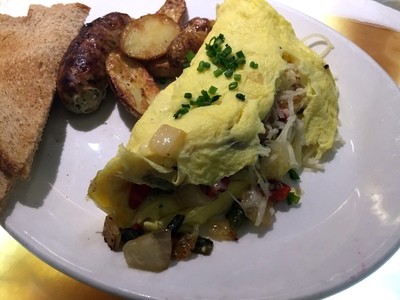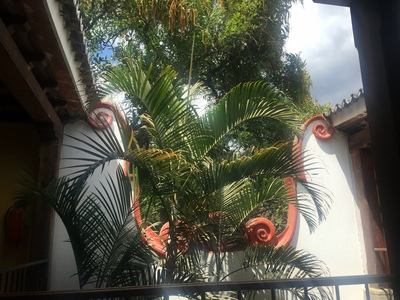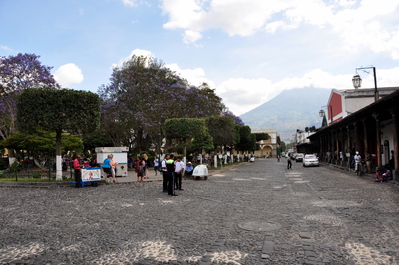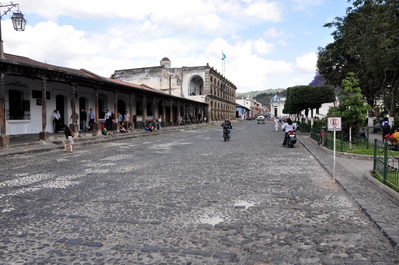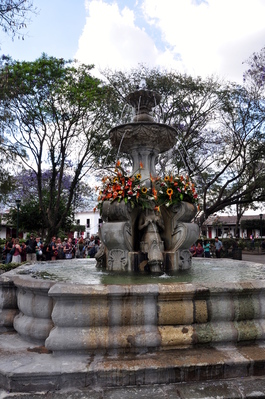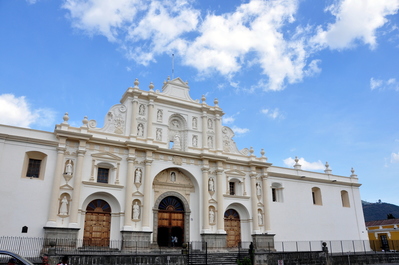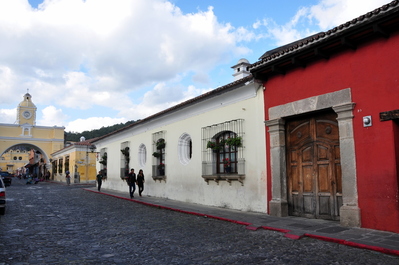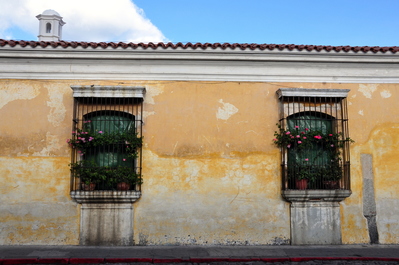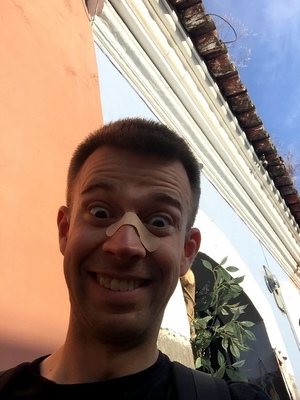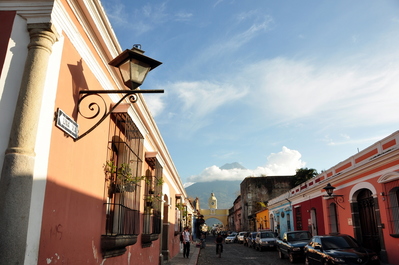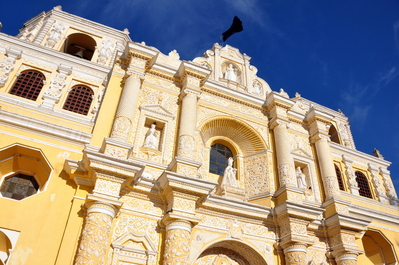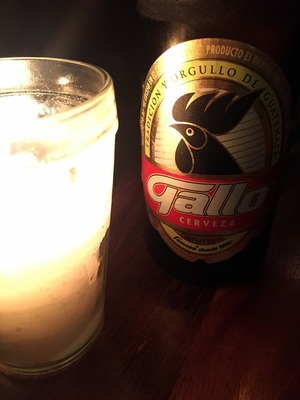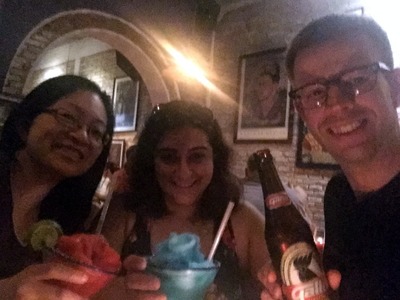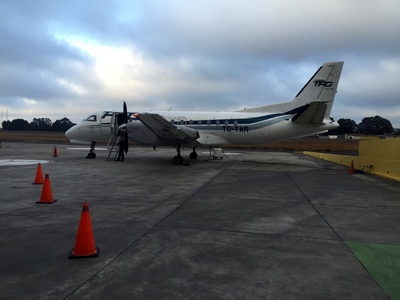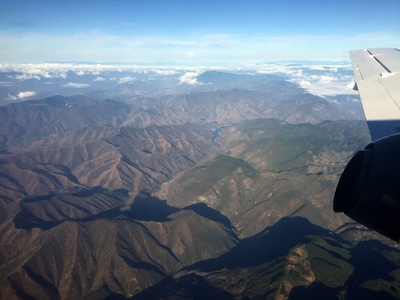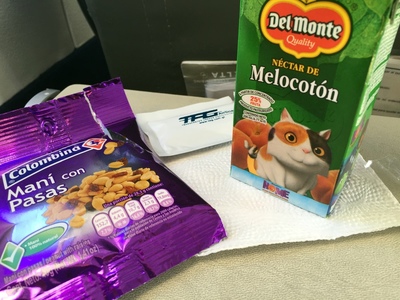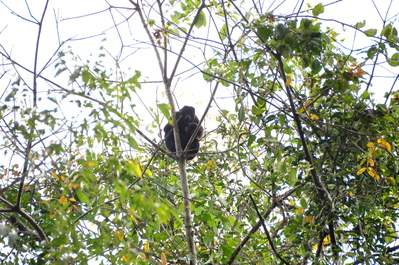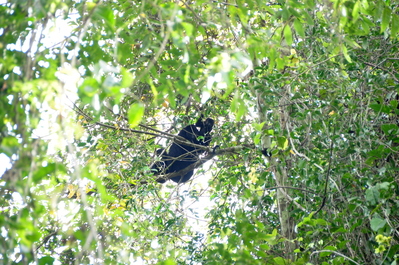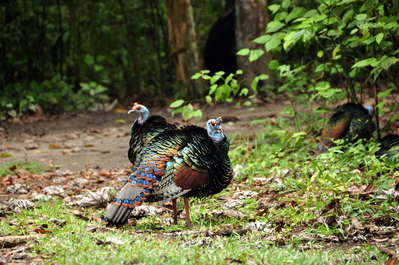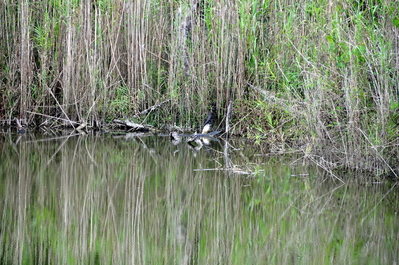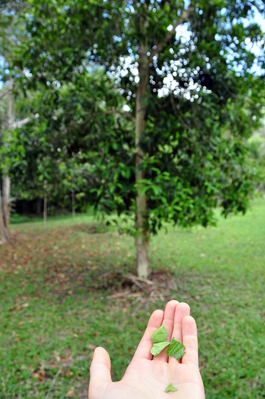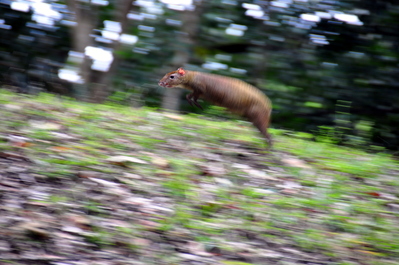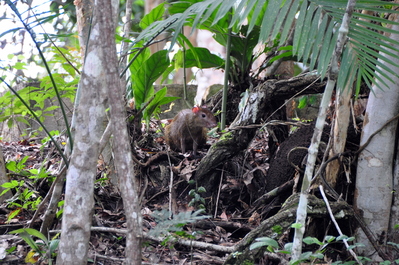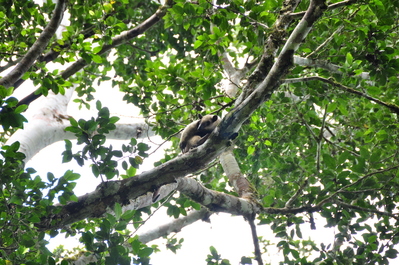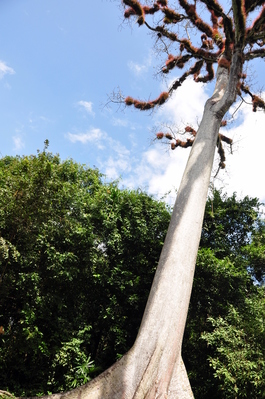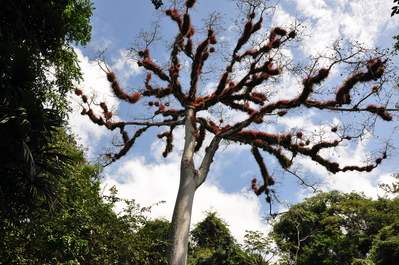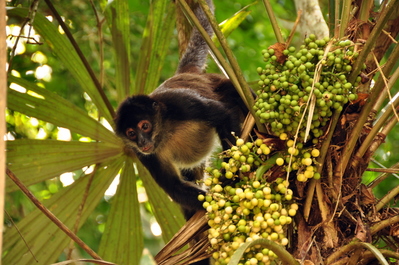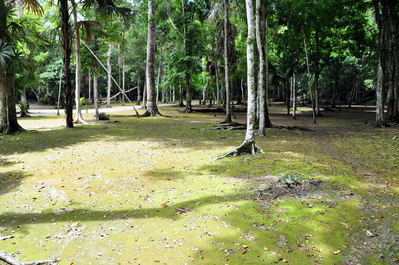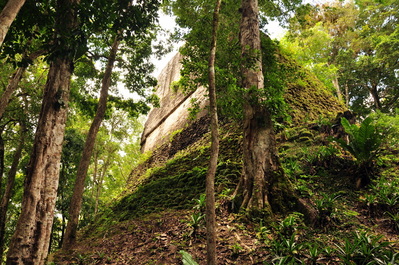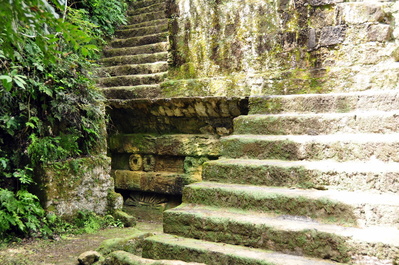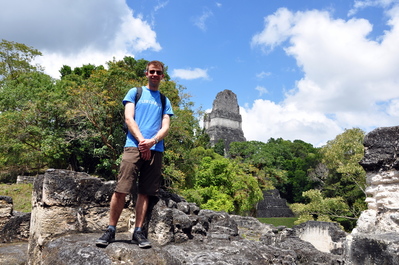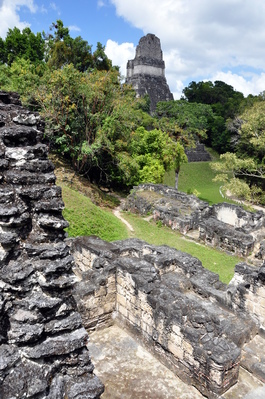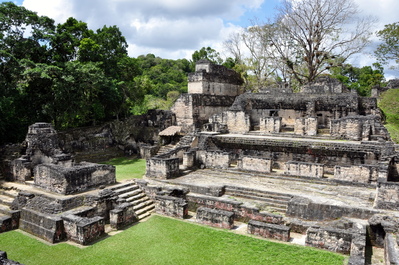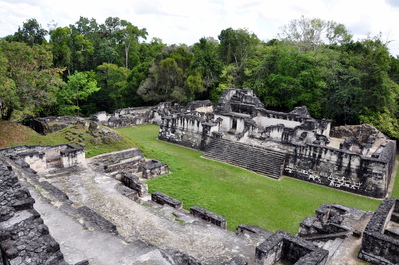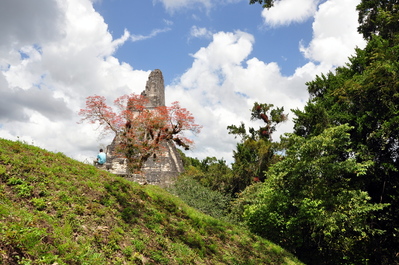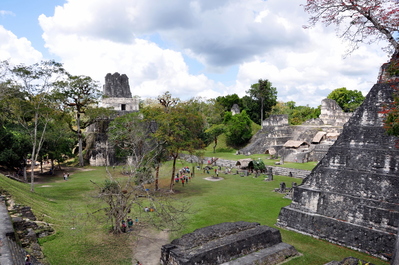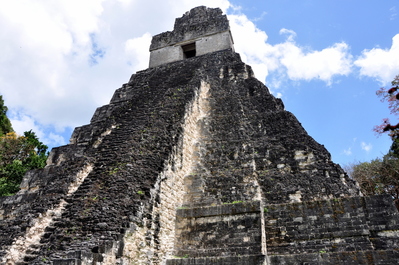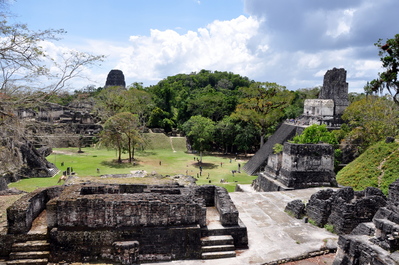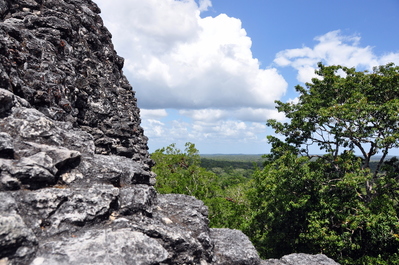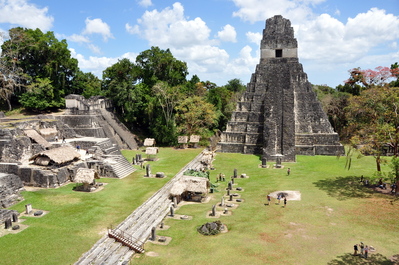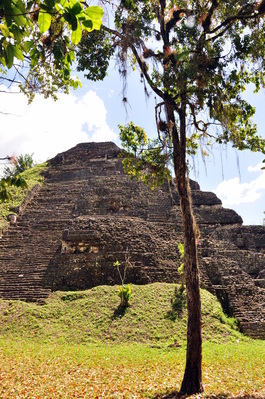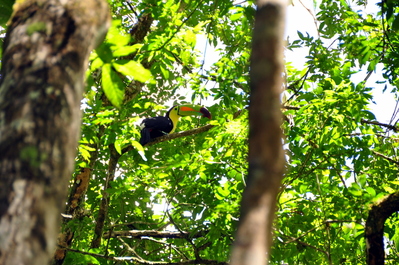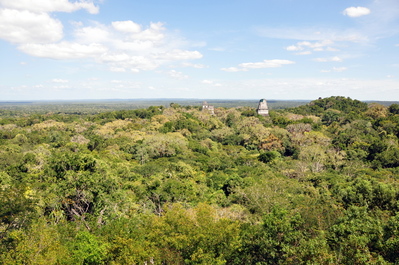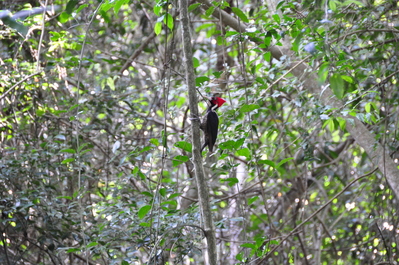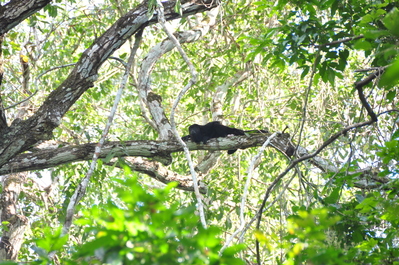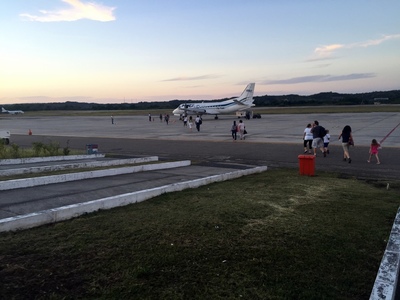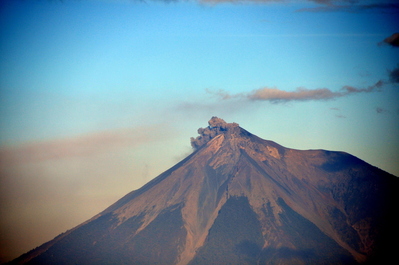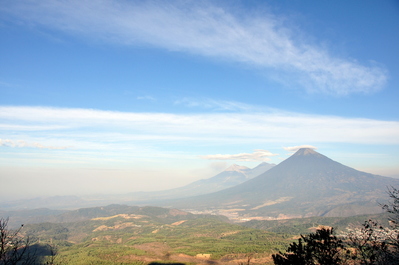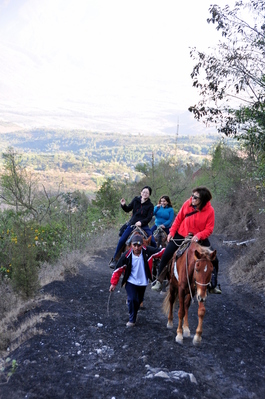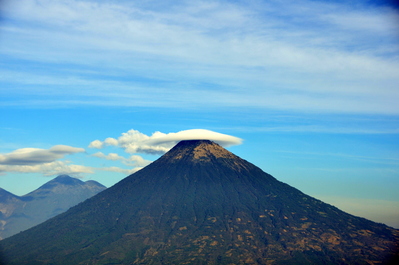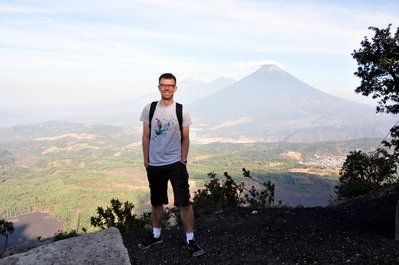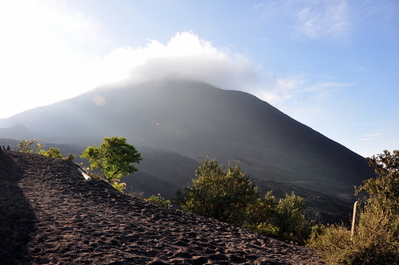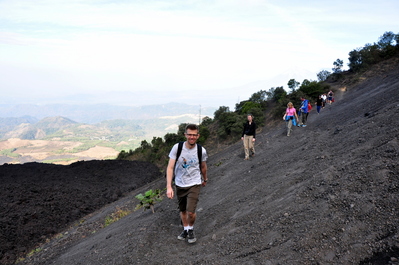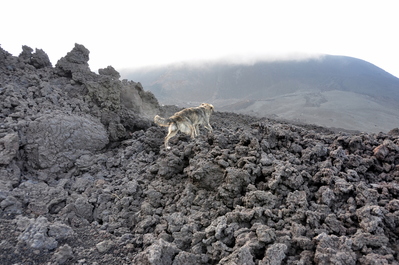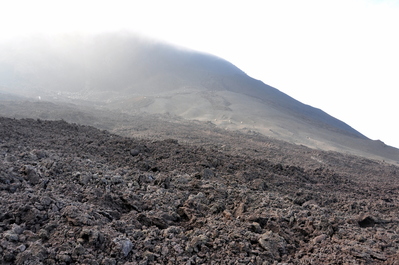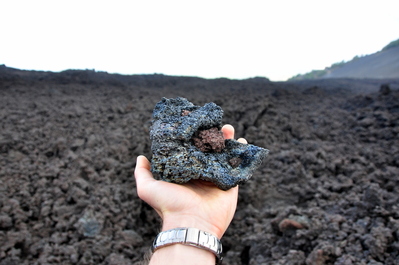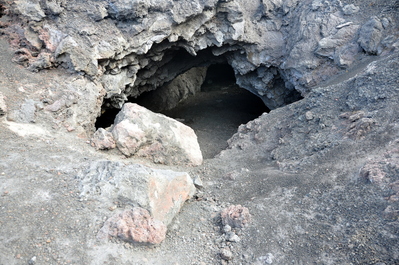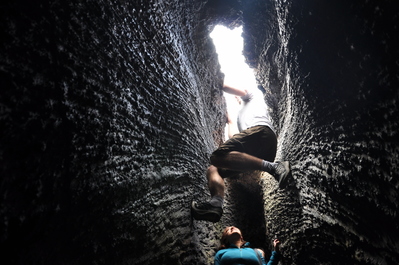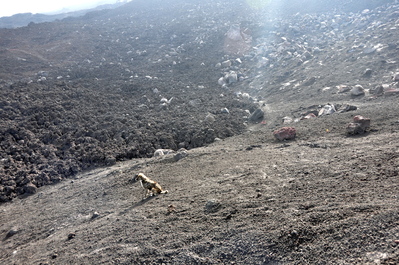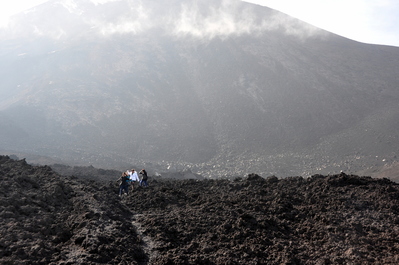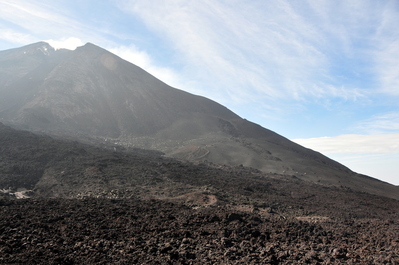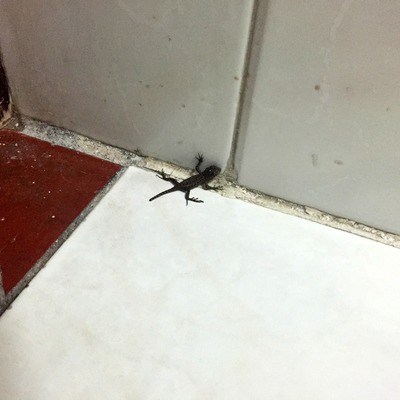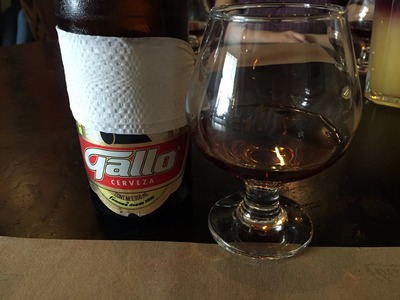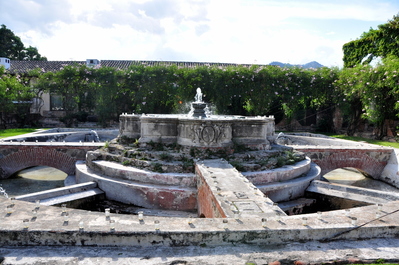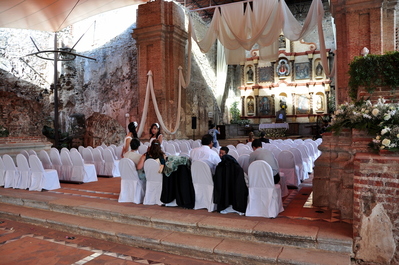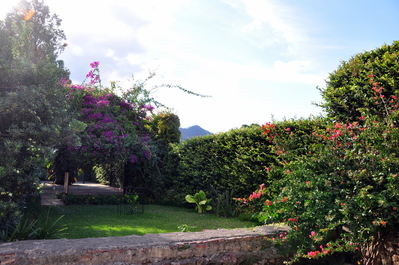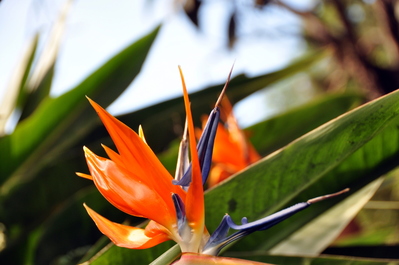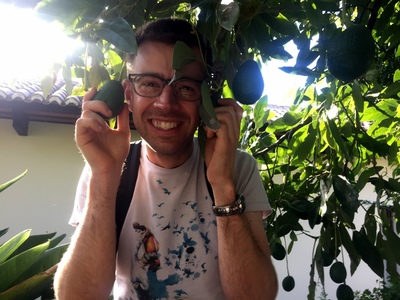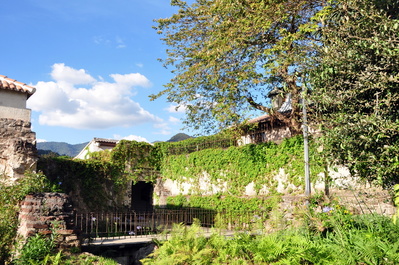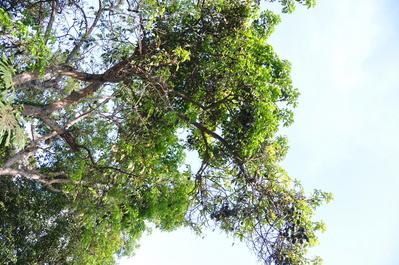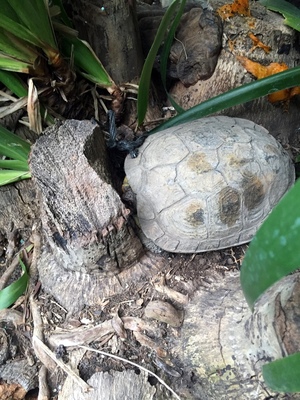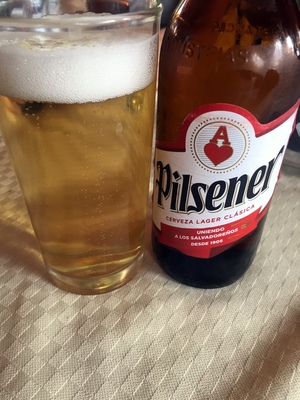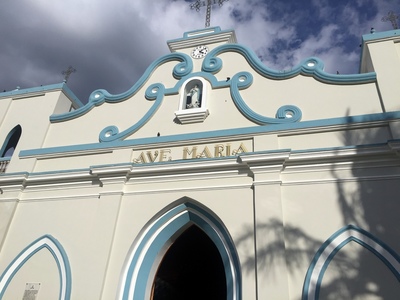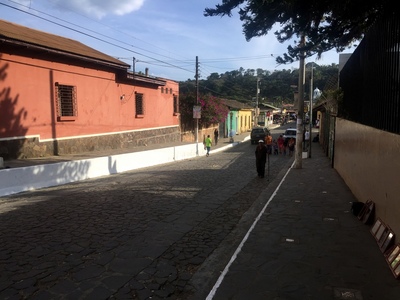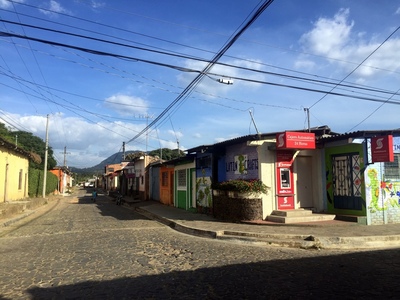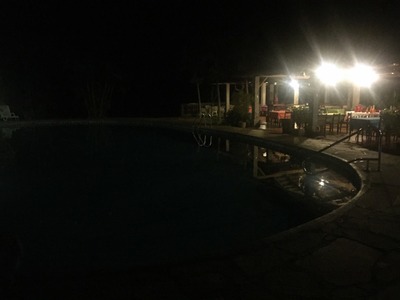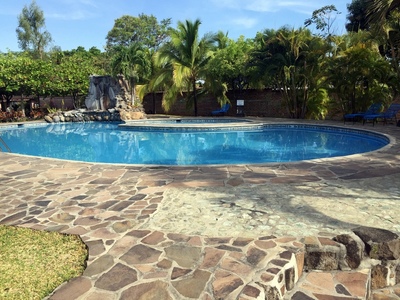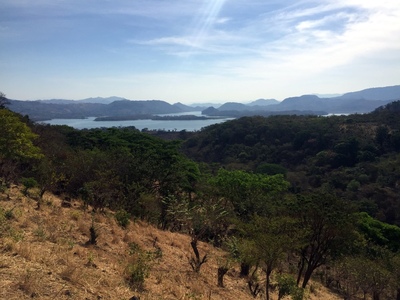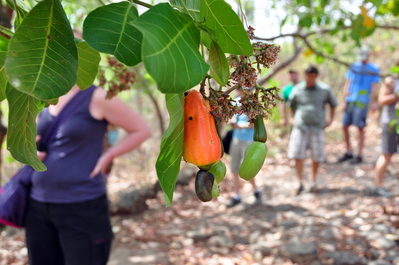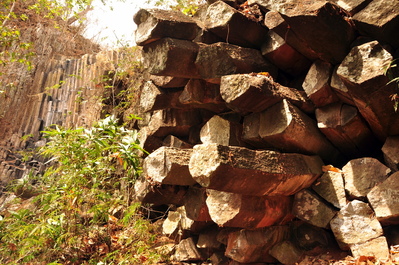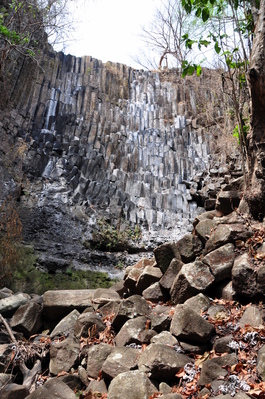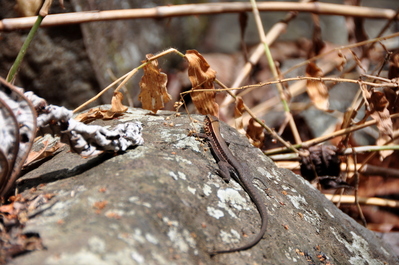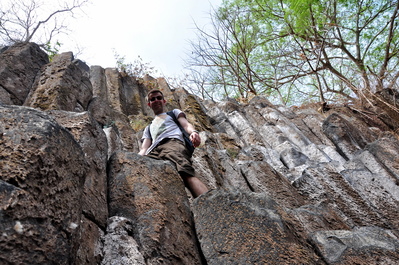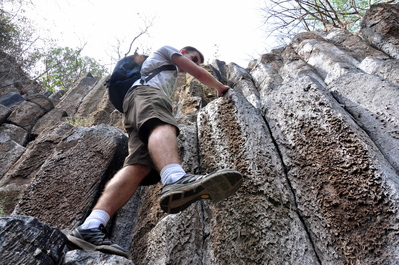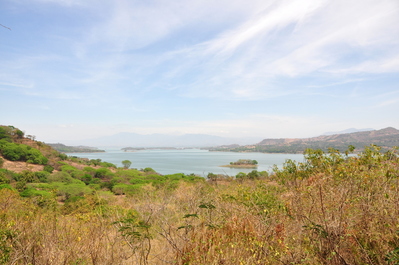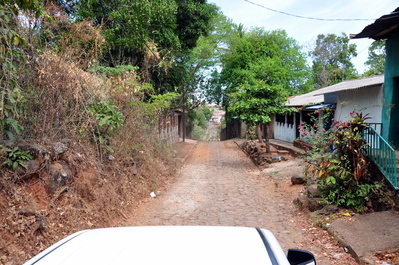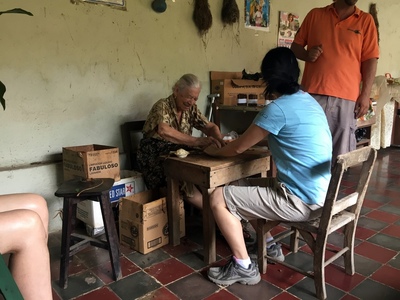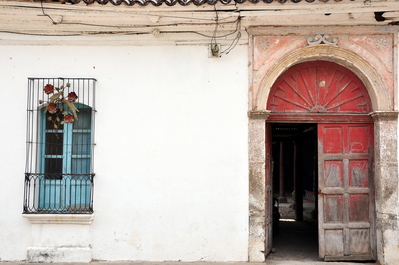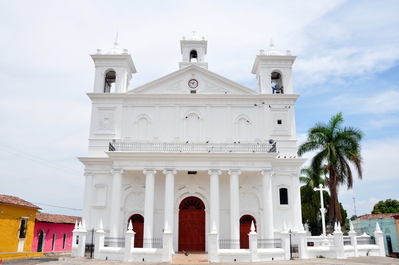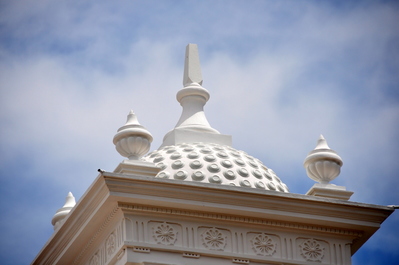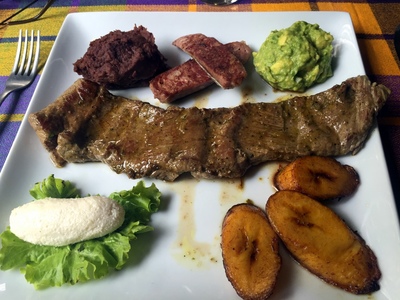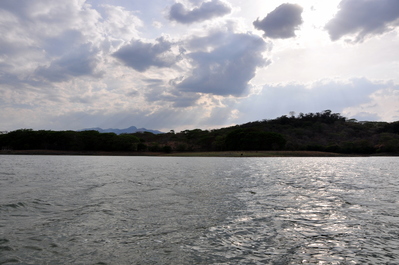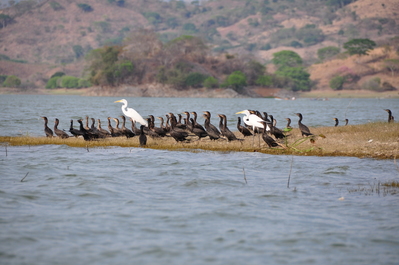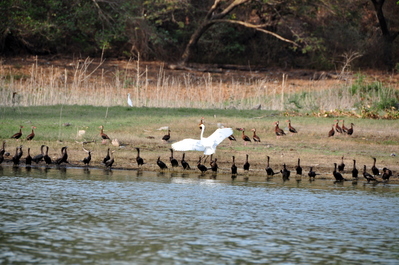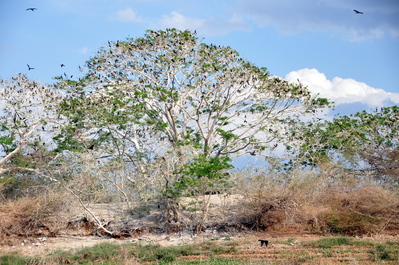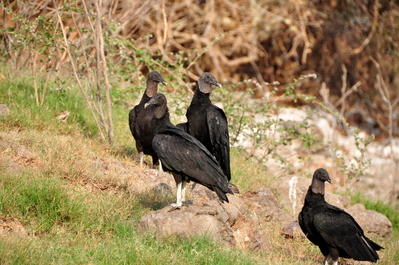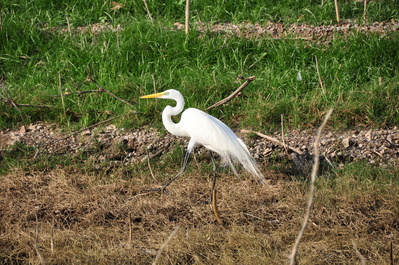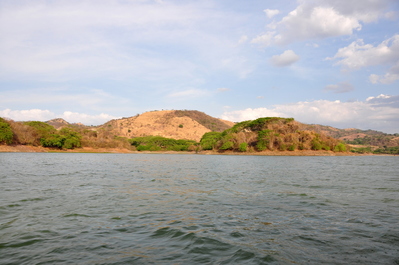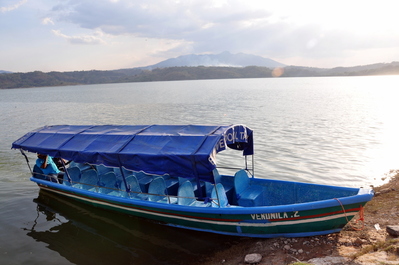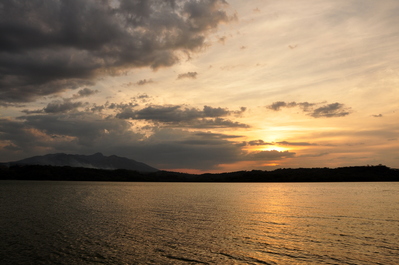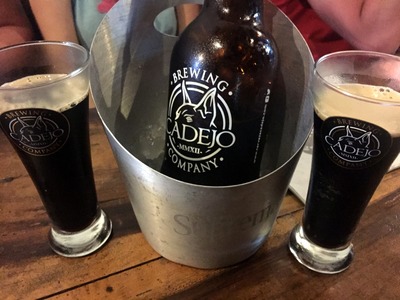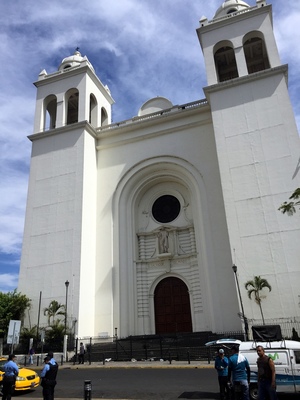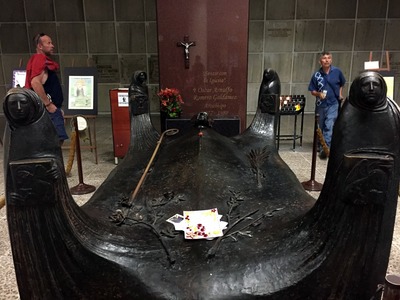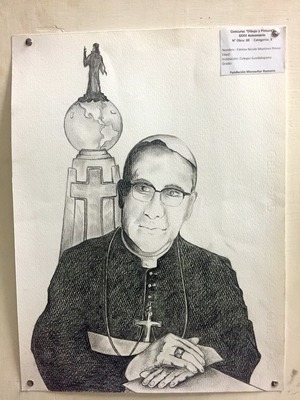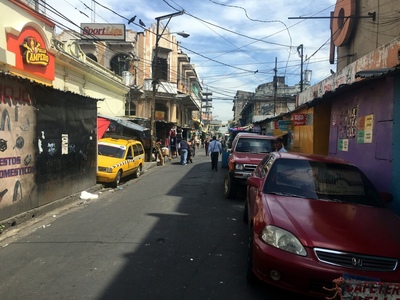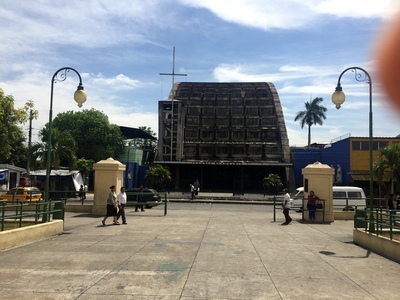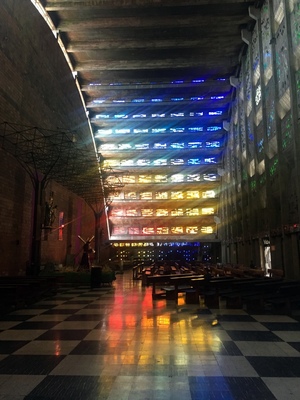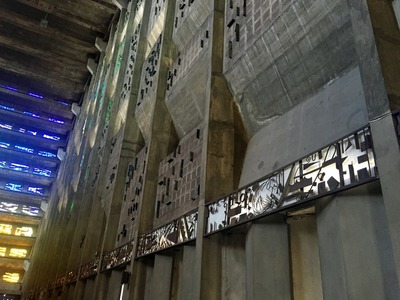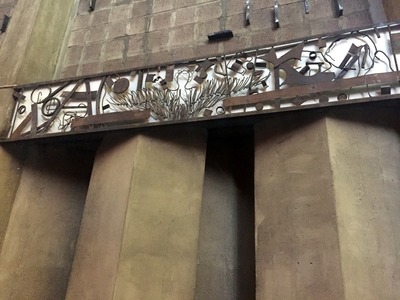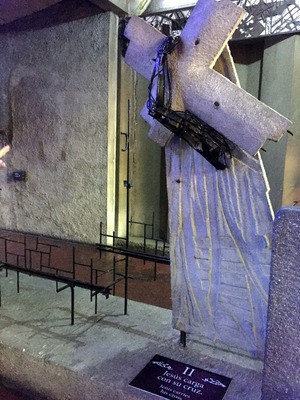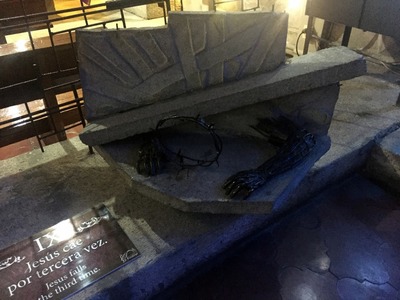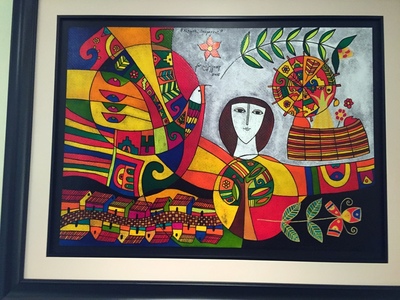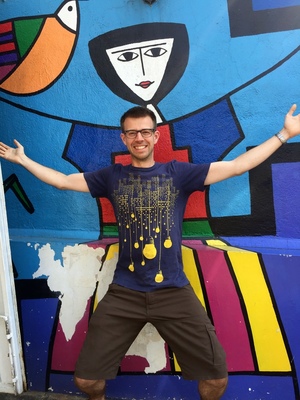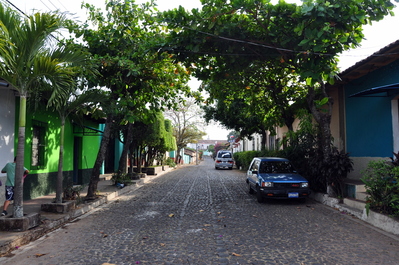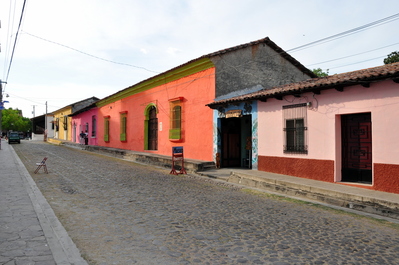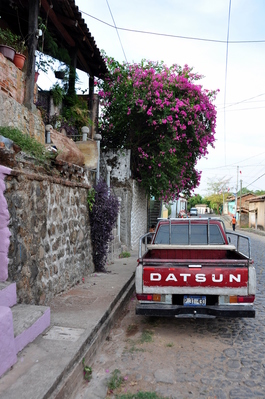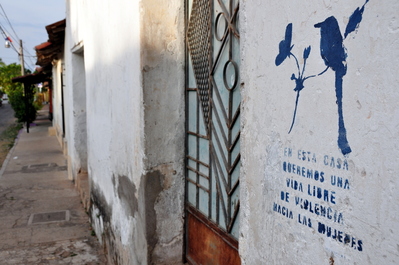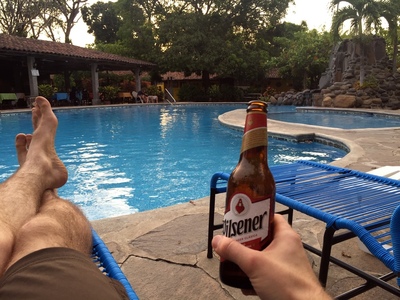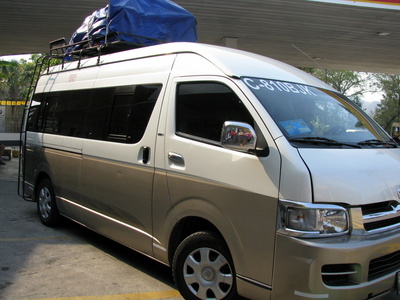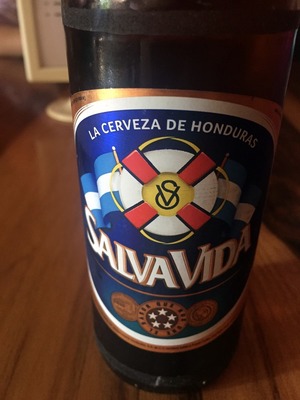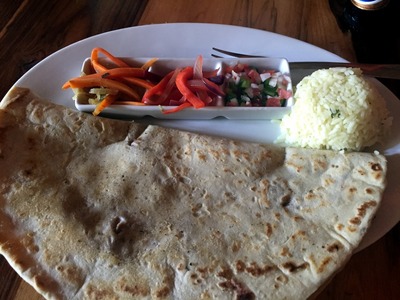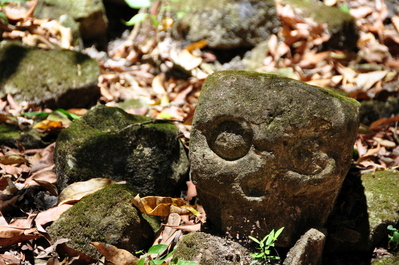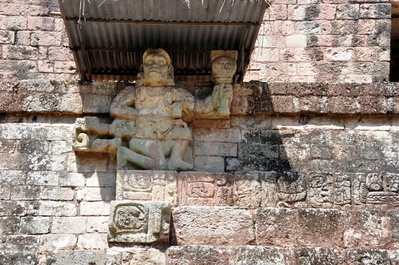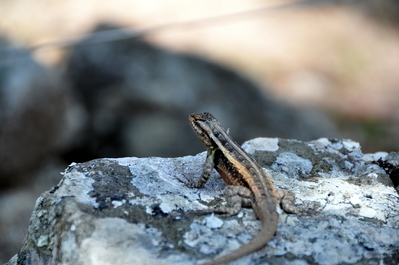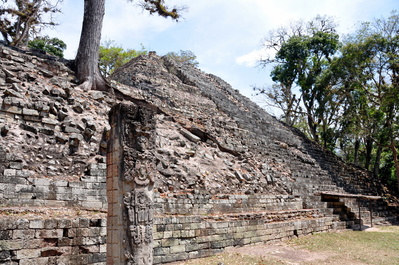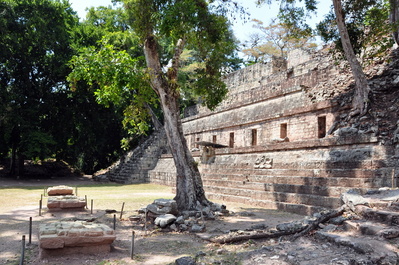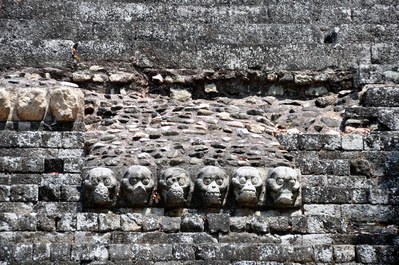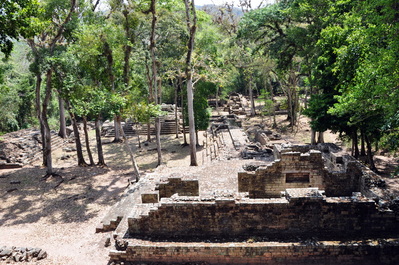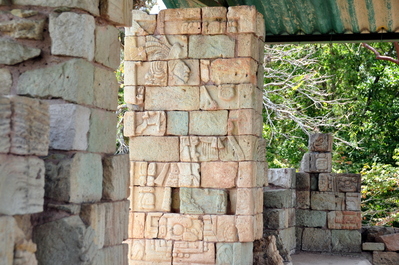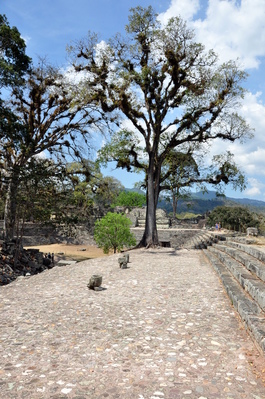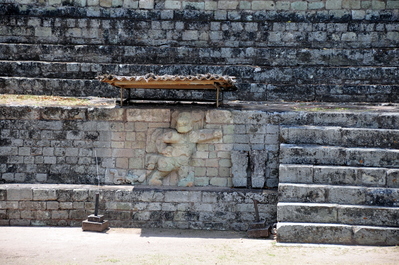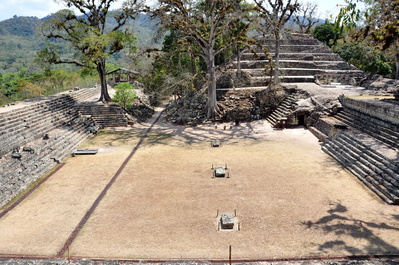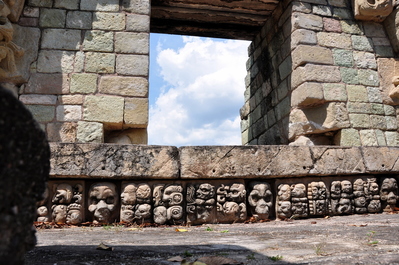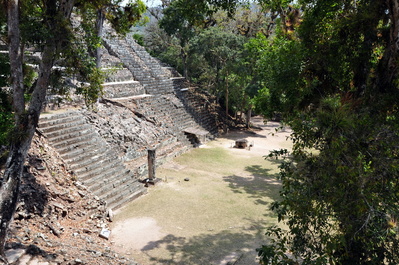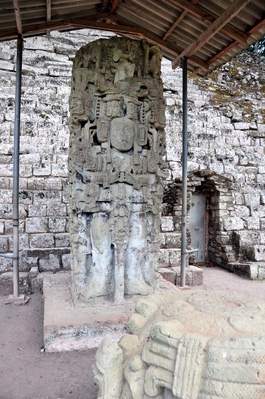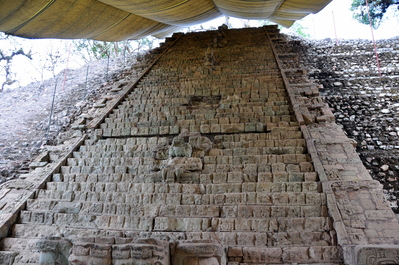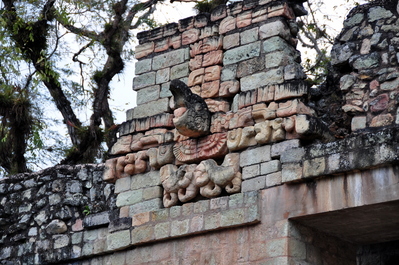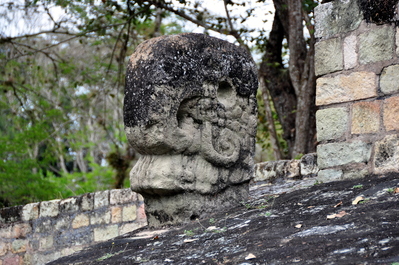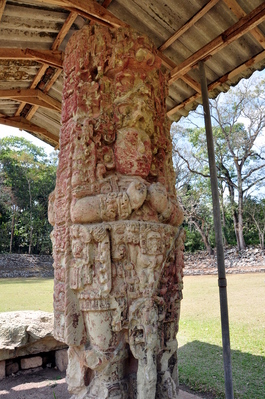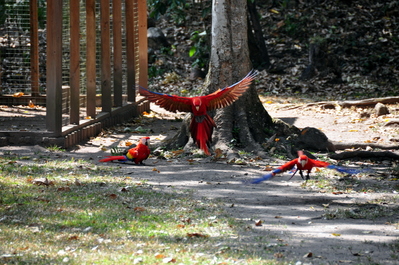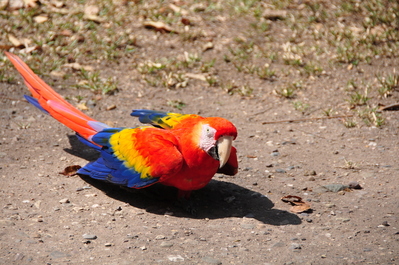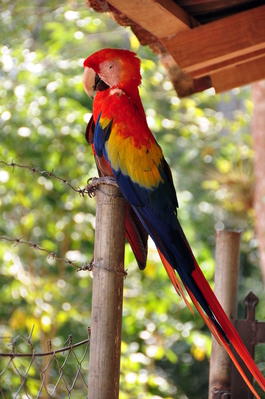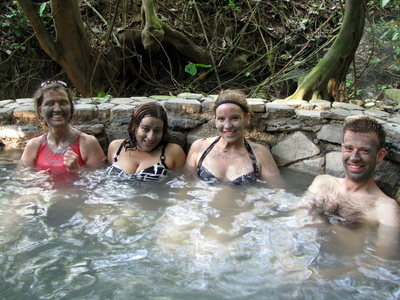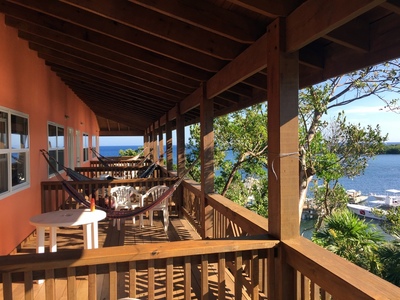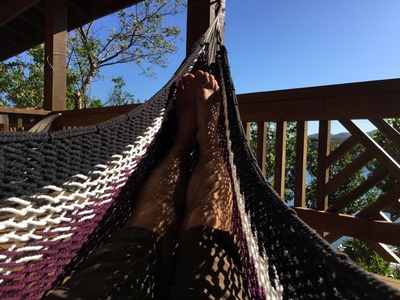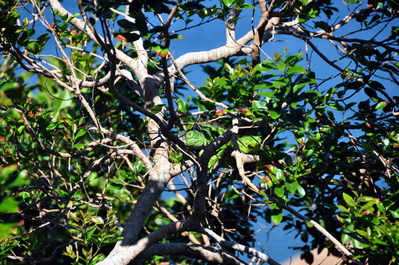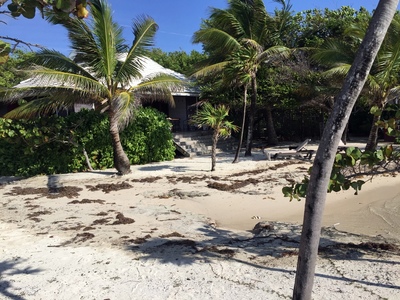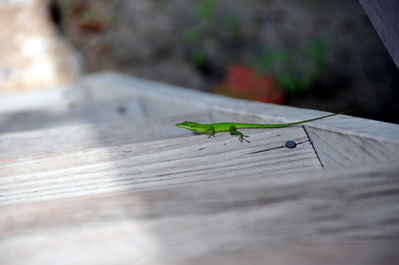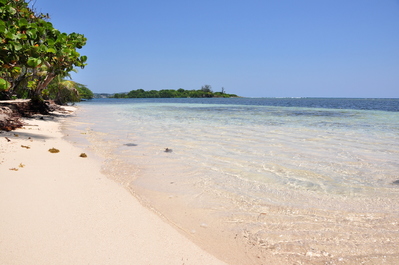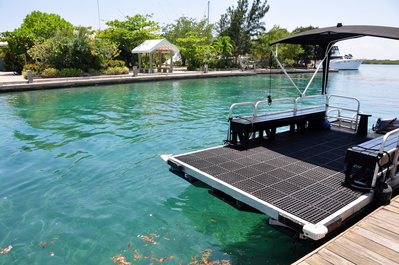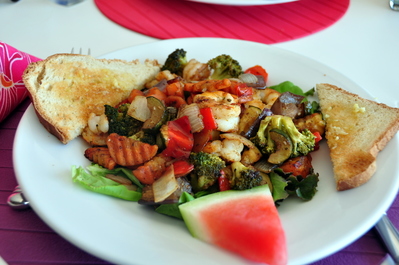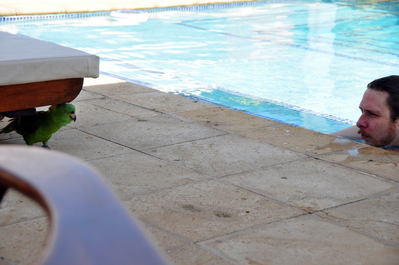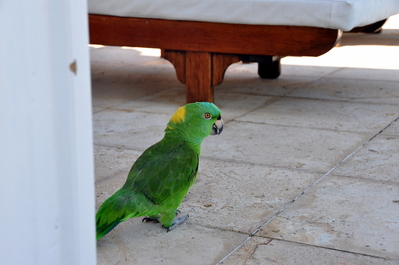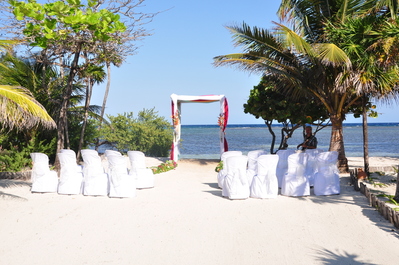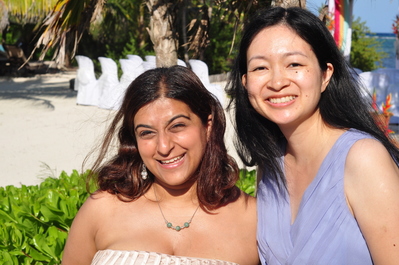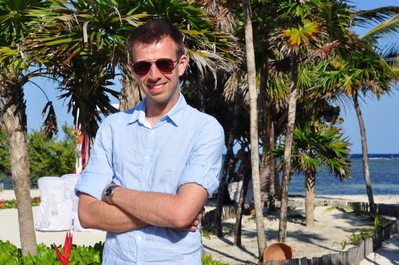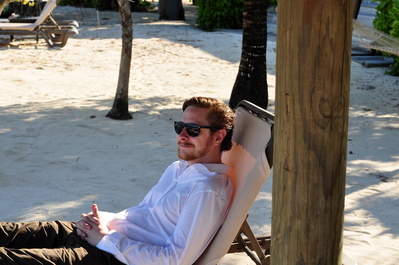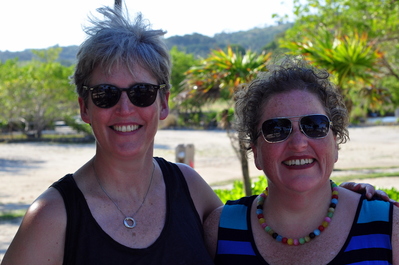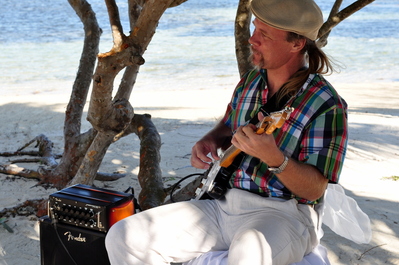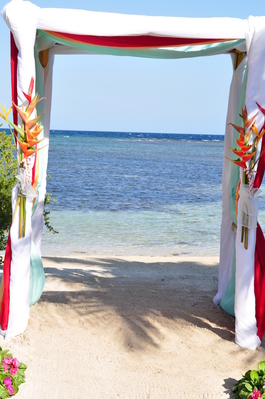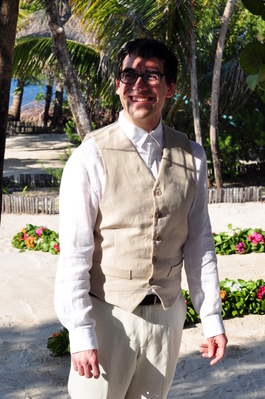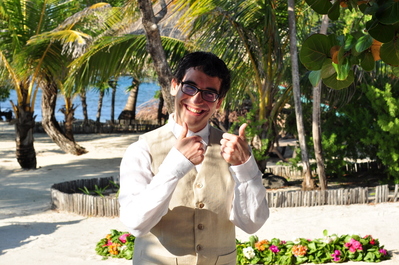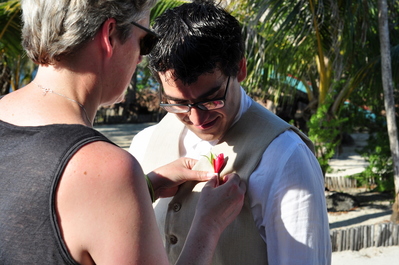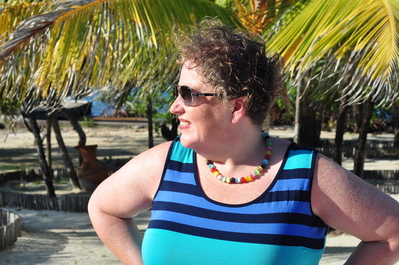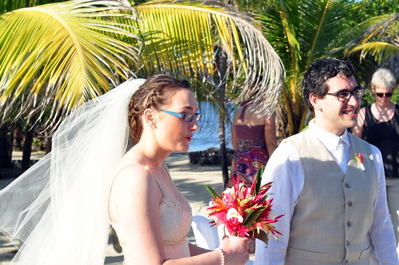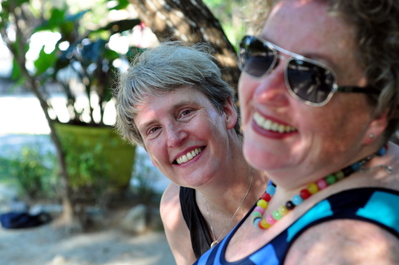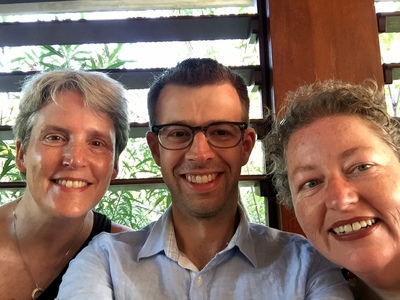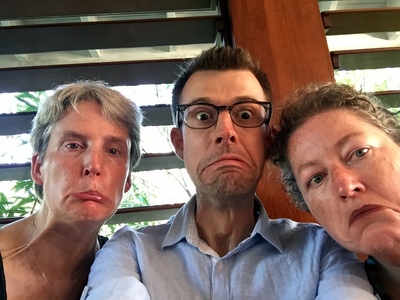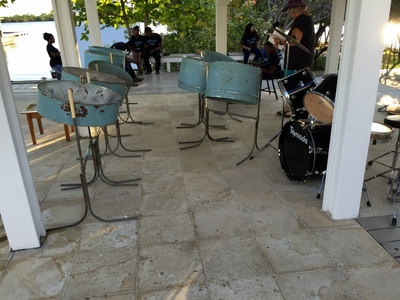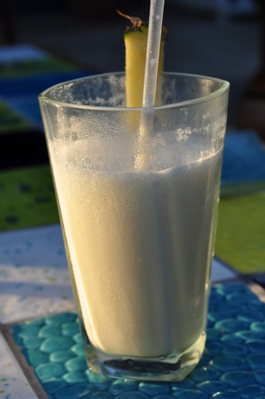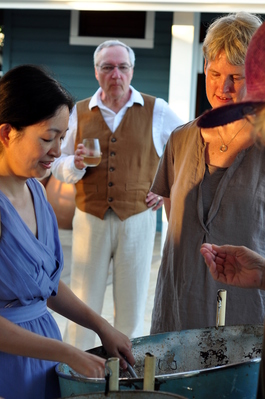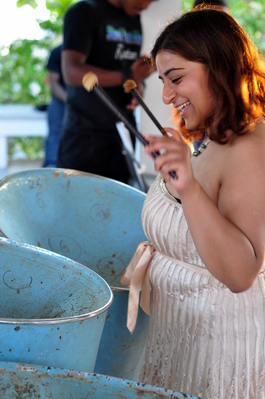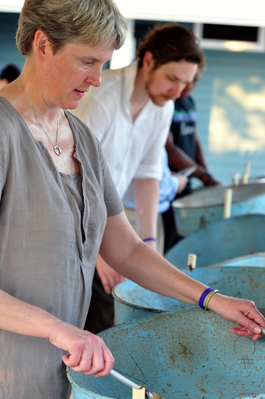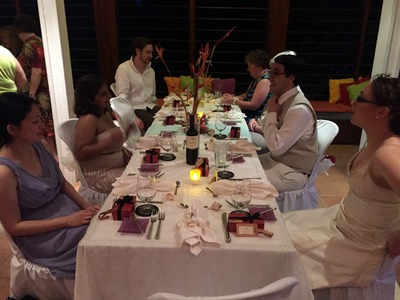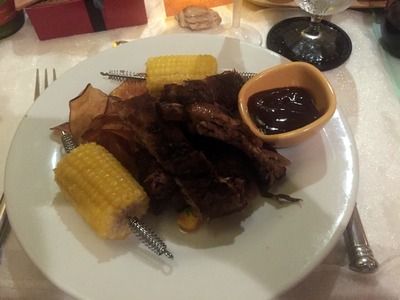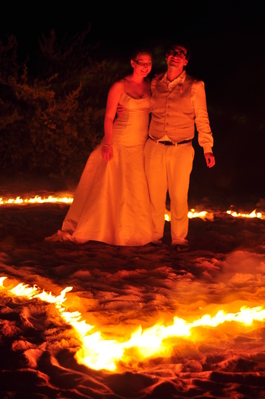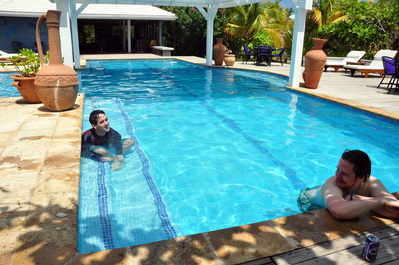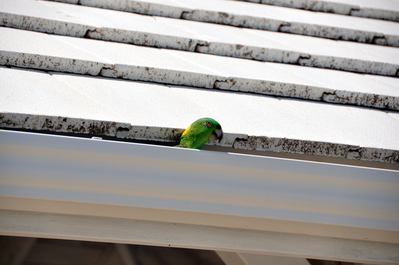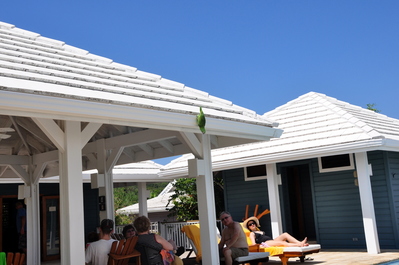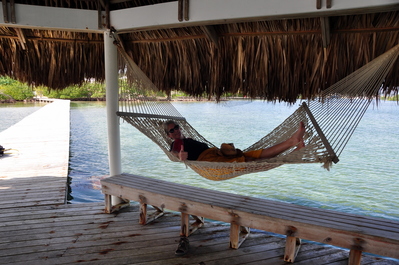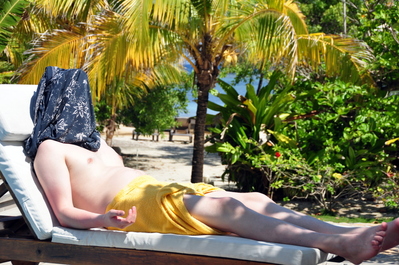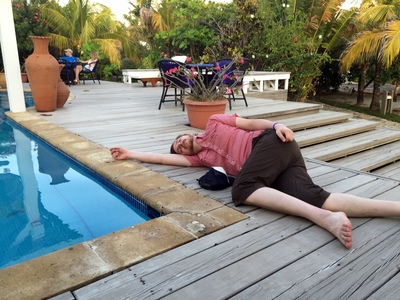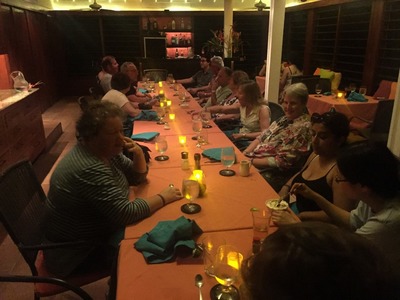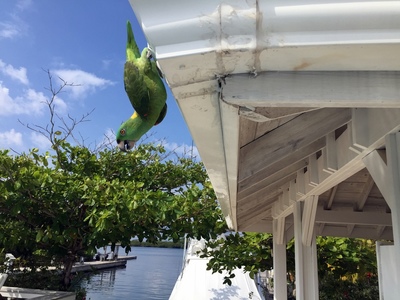This morning we left the hotel at 5am to drive to La Ceiba where we caught a ferry to Roatán. It was mostly a travel day.
Mid-morning we stopped for gas and although there were many guns in many places in both Guatemala and El Salvador, Honduras clearly brings it to a higher level. The gas station basically had a private militia guarding it with at least six men sporting shot guns or other large weapons in addition to holstered hand guns and knives. Many had bandoliers with extra bullets and they all looked very serious. Just past the gas station was a police+military checkpoint where an even greater amount of fire-power was on display. This one little region had more guns than I saw in all of the two previous countries combined.
For lunch we stopped at the Honduran version of a highway rest-area but the food was noticeably healthier than what you'd get in North America. Basically just regular Honduran cooking served up from warming trays in a shiny new building. It certainly wasn't the best food of the trip, but it wasn't bad either.
After lunch as we approached the coast the scenery changed from mountains to endless plantations of bananas, pineapples and red palm oil trees. Palm oil trees are huge and required the clearing of much land which of course has had a negative impact on the environment. Our guide David was quite critical of the industry and although the trees seemed exotic and pretty to me I'm sure the original biome would have been a lot more interesting.
We made excellent time driving and arrived two and a half hours early for the ferry. There wasn't a lot to do so we mostly just sat around in the terminal chatting. The crossing is ninety minutes long and the water between the mainland and the island is over three kilometres deep in many places. Consequently many people get extremely seasick, to the point that your ferry ticket comes with a free dose of dramamine. I took the medicine and did not get sick, but I could very easily see how sickness might have occurred. Many people looked quite unwell. To keep my mind off it I focused on having a nice conversation with some of the tour group and also on the beautiful sunset that occurred while we crossed. We literally could see the sun falling below the horizon.
On the island we caught a taxi to the hotel in West End and then we all went out to dinner at an Argentine steak house. Sue and Joe had arranged to be in West End this evening so I ran into them while we walked to dinner and we chatted a bit before they went to find their own food elsewhere. It's been a good trip and the people on the tour are nice, but I'm extremely pleased to be in the same place as some of my best friends in the world. Living in San Francisco is awesome but I miss my people back in Toronto a bunch.
Dinner was excellent (although there was a bit of price shock...we're definitely not in Central America any more) and after the meal I sat a while on some lounge chairs at the beach before heading to a bar with four members of the group. We had a bunch of drinks and a good time chatting before returning to the hotel around midnight.
The hotel is nice, with ocean views from each room and private balconies with hammocks. The A/C costs $15/night but fortunately the breeze off the ocean is enough to keep the room comfortable for sleeping.
It's very clear that I'm in the Caribbean now and no longer in Central America. As such I feel this is a good time to reflect on my first experience in that part of the world.
All three countries I visited are considered "developing nations" meaning that they are not first world, but they are not exactly third world either. These are definitely the poorest countries I've been too and the poverty was quite stark in many places. However this poverty was juxtaposed with many random amenities. Houses that were little more than shacks would often have large flat-screen TVs and a fancy new washing machine out on the porch. Everyone has a mobile phone and there are many common American chains everywhere (Pizza Hut, Walmart, Wendy's, Starbucks, Dunkin' Donuts, Burger King, etc.). Infrastructure (roads, public transit, water, sewers) is often poor but does appear to be improving. I mentioned the large number of guns, but I did not see any violence. It was clear though that Honduras is not doing as well as Guatemala and El Salvador.
All three countries have suffered much from US influence over the years. To begin with the United Fruit Company came from America in the early 1900s and developed many of the plantations that dot the region. Their labour practices were less than stellar and this eventually led to the beginnings of union activity. Unfortunately, organized labour looked a lot like communism to the United States during the cold war years and so the US government worked against it in both overt and subtle ways. This led to years of civil war and unrest. Now the countries must deal with the ever-present drug trade and the importation of the worst part of US culture: rampant consumerism. It's easy to see why there are so many problems.
Beyond geopolitics and social concerns there were a number of small things I found interesting and/or surprising.
I saw no squatter-style toilets which I assume must be the influence of North America since I've seen them in almost every other country I've visited.
I was also surprised by the number of volcanoes. I didn't realize the region was so seismically active. The destruction over the years has been another source of difficulty for these countries on top of everything else.
There were hammocks everywhere: homes, workplaces, even hanging underneath the trailers on big trucks. People like their siestas and it's hard to say no to a good hammock.
The driving was less chaotic than I expected. A little crazy, but probably no worse than Rome and nothing like what I saw in China. And speaking of cars, I love the local attitude towards vehicles. In the developed world a ten year old car is ancient. Down there it might be considered half-way through its life at worst. Well built, manual transmission vehicles are prized and people maintain them for decades. Also people pack cars to the extreme. Pick-up trucks with open beds regularly transport a dozen or more bodies along with assorted goods. This difference in attitude means that cars hold their value quite well. You can buy a car down there and if it's good you can sell it years later for close to the original price.
The people I interacted with were all pretty happy and friendly by default. The pace was definitely slower, but not in an annoying manner. People just seemed to be very relaxed.
I'd love to return to Central America, in particular El Salvador. It was just such a fun and beautiful place. I'd also like to visit Nicaragua, Belize, Costa Rica and Panama.
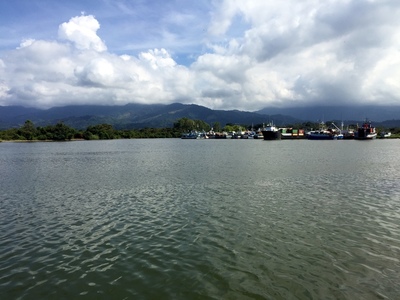
Waiting for the ferry at La Ceiba
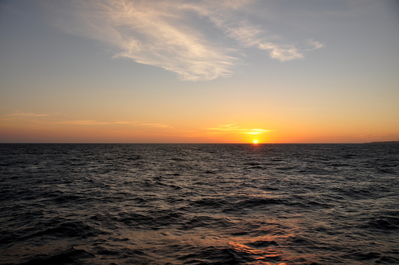
Sunset
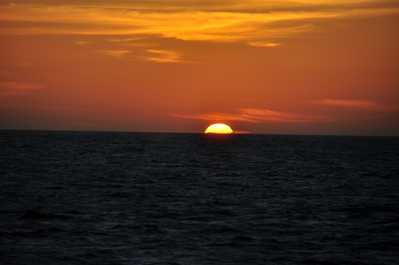
Sunset
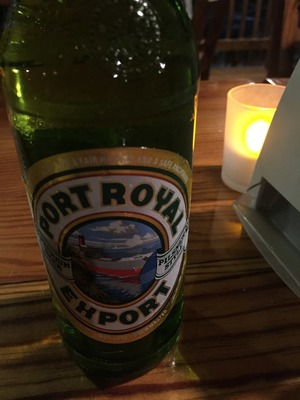
Dinner Beer
